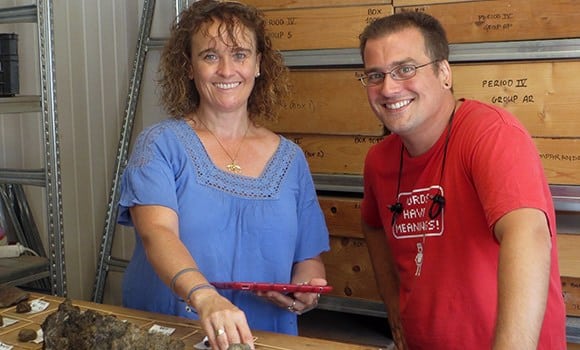
Discussions in the humanities – from philosophy and religion, to history and politics – guide our most crucial decisions, on a global scale and in very personal ways. They determine our understanding of ourselves and others, and how our communities build relationships and make progress. They shape our worlds.
But over recent decades, false narratives have accumulated around the humanities. Many, for example, perceive the study of humanities as a side item, an afterthought, or a luxury in undergraduate education.
However, studies of career readiness tell a different story. The National Association of Colleges and Employers has found that critical reasoning, collaboration, and communication – skills developed in humanities classrooms – are the skills that are the most sought after by employers.
With that knowledge, UNC Greensboro is on the road to changing how the humanities are perceived, in a big way. The University is re-envisioning the role of humanities in undergraduate education and, in the process, doubling down on its commitment to student outcomes.
Currently at UNCG, undergraduate research experiences are being integrated into a multitude of humanities courses and projects, along with career preparation and professional development components. The University has received a $200,000 grant from The Andrew W. Mellon Foundation to support those activities.
Opportunities for research with a faculty mentor strongly correlate to undergraduate academic achievement and positive post-graduate outcomes, such as advancing to graduate school or entering a satisfying career, says Dr. Joanne Murphy, associate professor of classical studies and principal investigator for the Mellon-funded Transforming the Humanities initiative.
“There are so many impacts of undergraduate research,” she says, “but what I love the most is the confidence. Students become an authority on a thing, and they are more confident when they speak to you, and more articulate in the way they speak. They also have the confidence to know where they can find answers – they can pull arguments together and present their material.”
Since 2009, Murphy has guided UNCG students through six-week professional internships at an archaeological field school on the Greek island of Kea. She also scaffolds research skill development into her classes on the ancient world at UNCG.
She finds that students who have opportunities to engage in research develop the confidence not only to share what they know but also to ask questions about what they don’t know – and to seek knowledge on their own.
“That’s what employers want,” she says. “People who are self-motivated and look for their own answers.”
Senior classical archaeology major Michael Bell has traveled to Greece three times to conduct research. Using data collected by the Kea Archaeological Research Survey, Bell is analyzing the use of apicultural goods, like honey and beeswax, and metallurgical material on the Cycladic island of Kea – the earliest known site for metal production in the Aegean. He’s exploring prestige goods production and how they relate to social organization and economic priorities.
Bell has presented his work at the Southern Conference Undergraduate Research Forum, as well as at UNCG’s Thomas Undergraduate Research and Creativity Expo.
“The experience I gained in field work, research methods, experimental design, data collection and analysis, and presenting results has been instrumental in preparing me for my future academic endeavors – and in helping me to build confidence in my personal life,” says Bell.
“The opportunities undergraduate research has afforded me have allowed me to develop skills that go far outside the bounds of standard coursework.”
This post is part of a larger story that originally appeared in UNCG Research Magazine. To read more and to view additional images, visit the magazine website.
Story by Susan Kirby-Smith, University Communications at UNCG
Please visit https://newsandfeatures.uncg.edu/new-vision-for-humanities/ for the origninal article.
Founded in 1978, the Council on Undergraduate Research (CUR) focuses on providing high-quality and collaborative undergraduate research, scholarly, and creative activity. Among the many activities and networking opportunities that CUR provides, the organization also offers support for the professional growth of faculty and administrators through expert-designed institutes, conferences, and a wide-range of volunteer positions. The CUR community, made up of nearly 700 institutions and 13,000 individuals, continues to provide a platform for discussion and other resources related to mentoring, connecting, and creating relationships centered around undergraduate research. CUR’s advocacy efforts are also a large portion of its work as they strive to strengthen support for undergraduate research. Its continued growth in connections with representatives, private foundations, government agencies, and campuses world-wide provides value to its members and gives voice to undergraduate research. CUR is committed to inclusivity and diversity in all of its activities and our community.
CUR focuses on giving a voice to undergraduate research with learning through doing. It provides connections to a multitude of campuses and government agencies, all while promoting networking and professional growth to its community.


